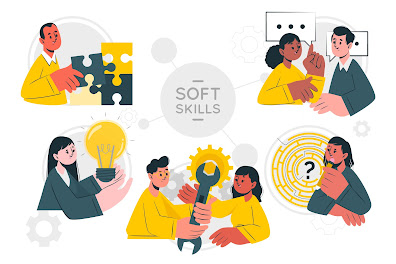Ensuring Fairness, Validity, and Reliability in the Level 3 Certificate in Assessing Vocational Achievement
Introduction
Assessment plays a crucial role in education, helping to measure a learner's understanding and skills. In the context of the Level 3 Certificate in Assessing Vocational Achievement, a thoughtful and robust assessment process is vital to ensure fairness, validity, and reliability. In this blog, we will delve into the assessment process and discuss the steps taken to uphold these key principles.
Understanding Assessment
Assessment involves gathering evidence to evaluate a learner's knowledge, understanding, and competence. In the Level 3 Certificate in Assessing Vocational Achievement, the assessment process is designed to measure a candidate's ability to assess vocational skills in a real-world setting.
Fairness in Assessment
Ensuring fairness in assessment is paramount to creating an equitable learning environment. In the Level 3 CAVA program, several strategies were employed to achieve fairness:
1. Clear Assessment Criteria:
Clearly defined assessment criteria were provided to both assessors and learners. This transparency helps everyone understand the expectations and standards.
2. Access to Resources:
All learners were given equal access to necessary resources, such as textbooks, materials, and equipment. This ensures that no candidate is disadvantaged due to a lack of access to essential tools.
3. Reasonable Adjustments:
The program implemented reasonable adjustments to accommodate learners with disabilities or specific needs. This could include additional time, modified tasks, or alternative assessment methods.
Validity in Assessment:
Validity refers to the accuracy and relevance of the assessment in measuring what it intends to measure. In the Level 3 Certificate in Assessing Vocational Achievement program, steps were taken to enhance validity:
1. Alignment with Learning Outcomes:
Assessments were closely aligned with the program's learning outcomes. This alignment ensures that the assessments are testing the knowledge and skills that the learners were expected to acquire.
2. Real-world Scenarios:
Assessment tasks were designed to reflect real-world vocational scenarios. This approach enhances the face validity of the assessments, making them more relevant and engaging for the learners.
3. Peer Review and Validation:
Regular peer reviews and validation sessions were conducted to ensure the appropriateness of assessment tasks. This involved feedback from experienced assessors to enhance the overall validity of the assessments.
Reliability in Assessment:
Reliability refers to the consistency and dependability of assessment results. To ensure reliability in the Level 3 CAVA program, the following measures were implemented:
1. Standardization of Assessment Procedures:
Assessment procedures were standardized to ensure consistency across different assessors and assessment sessions. This standardization helps in obtaining reliable results regardless of who is conducting the assessment.
2. Training and Calibration of Assessors:
Assessors underwent rigorous training to ensure they understood the assessment criteria and procedures. Regular calibration sessions were conducted to minimize variations in assessment judgment among different assessors.
3. Moderation Process:
A robust moderation process was established, involving the review of assessment outcomes by a qualified moderator. This external review ensures that assessments are fair, valid, and reliable.
Conclusion
In conclusion, the Level 3 Certificate in Assessing Vocational Achievement places a significant emphasis on maintaining fairness, validity, and reliability in the assessment process. By implementing clear criteria, providing equal access to resources, aligning assessments with learning outcomes, and standardizing assessment procedures, the program strives to create a fair and dependable evaluation system. As education continues to evolve, these principles remain essential in fostering a conducive learning environment and ensuring that assessment accurately reflects a learner's capabilities.
.jpg)


Comments
Post a Comment